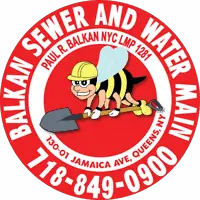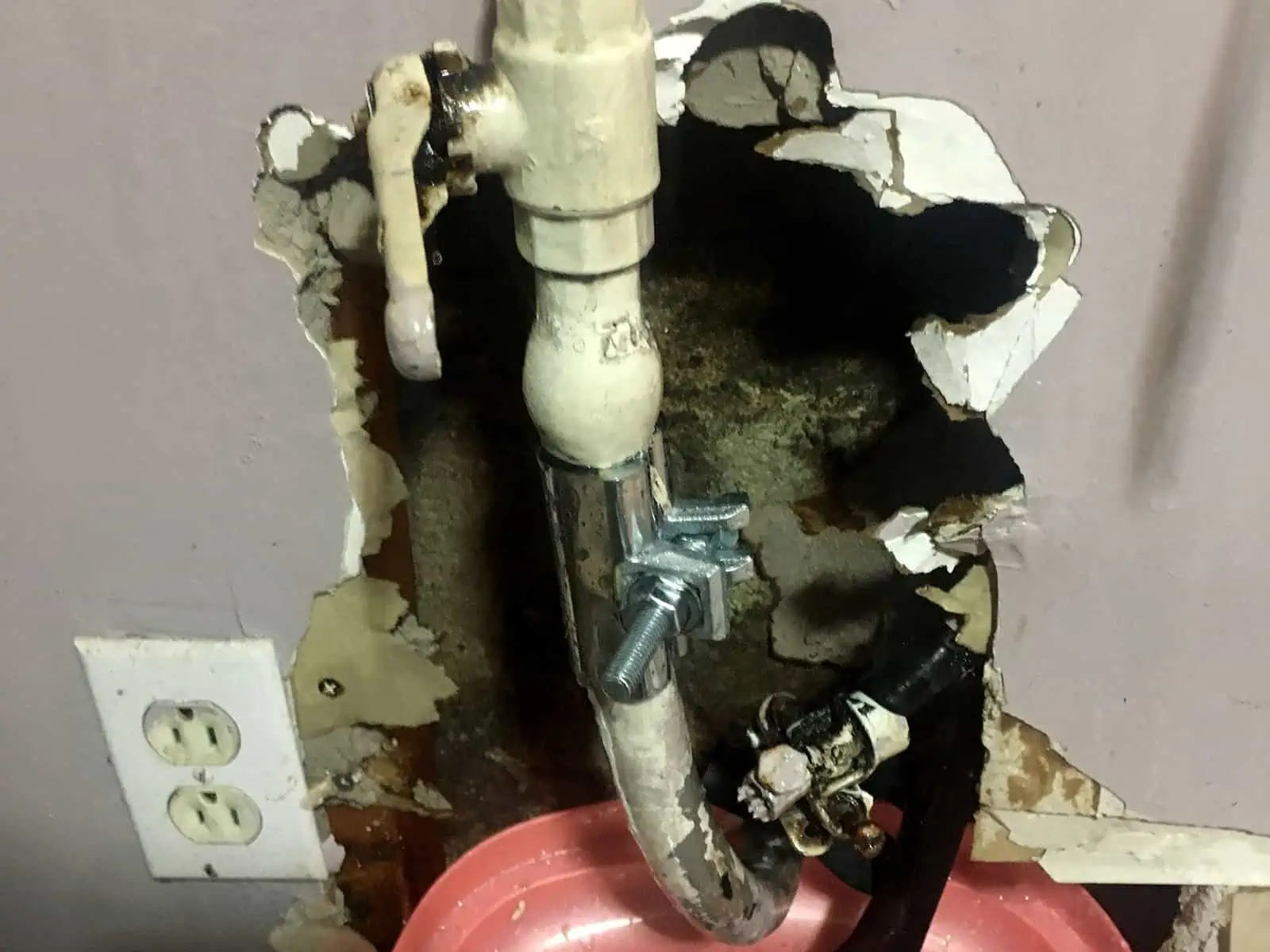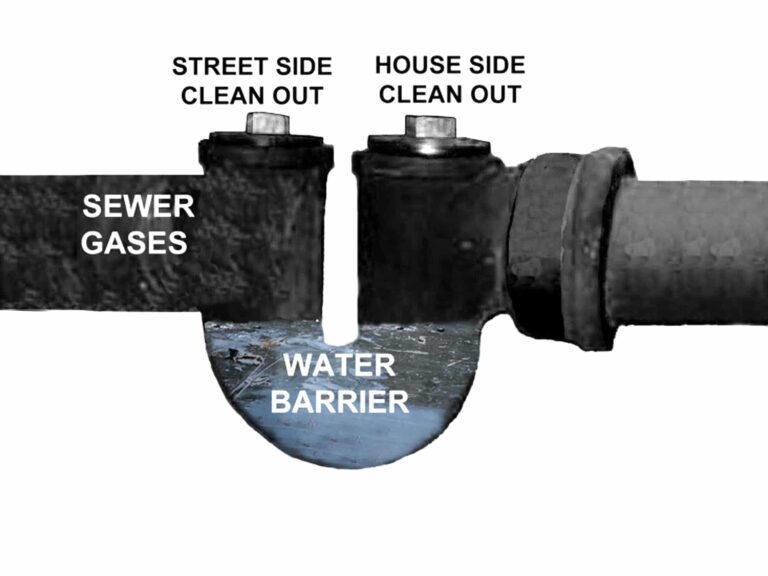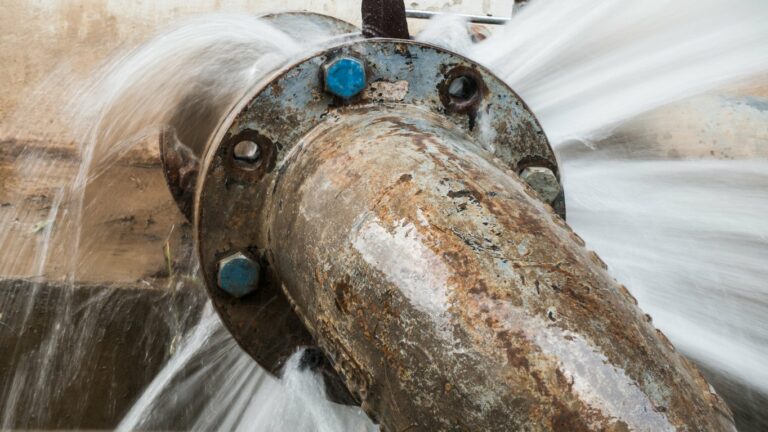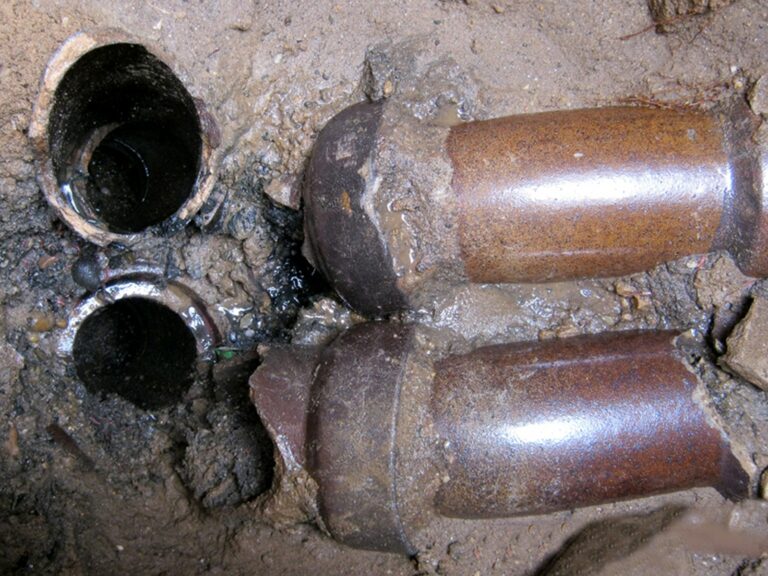There are 10 most common types of plumbing emergencies that typically homeowners face. If you’re a homeowner, we’ll dive into those plumbing emergency situations, and also provide actions you can take to alleviate the emergency itself. Lastly, we’ll provide you with a 5-step best practices process for when you’re asking yourself “How do I find an emergency plumber near me”?
Do You Understand The High Cost of Water Damage?
Many folks do not fully realize the high cost of cleaning up from water damage and the importance of taking immediate action when a sudden water leak or sewer issue occurs. This involves property damage, lost personal possessions, and costly remediation and clean-up.
A 5-Point Plan To Limit Damage From A Plumbing Emergency
Before we get into the most common plumbing emergencies you’ll encounter, there’s a short 5-point list of typical responses that apply to many if not most situations.
- Turn off the valve that is closest to the leaking pipe or plumbing fixture. Most plumbing fixtures (toilets, sinks, hose connections, etc.) have an individual shut-off valve within a couple of feet from the fixture itself.
- If a drain line is clogged stop using the affected drain. If it is the main drain stop letting water go down any drain lines.
- Install water sensor alarms in any areas that might accumulate water during a leak or flooding. These inexpensive alarms can prevent a plumbing emergency.
- A WiFi-connected sewer alarm will warn you of a sewer backup way before it ever can cause damage.
- In many cases, a quick and temporary plumbing repair can be made. To learn more, read a Temporary Pipe Leak Repair Guide courtesy of Team Balkan.
10 Plumbing Emergency Conditions With Sensible Remedies
1. Burst Water or Heating Pipes:
A sudden temperature change or aging pipes can cause an assortment of pipes to burst, crack, or split. This can lead to significant water damage and a sudden loss of service.
Remedy: If a water or heating pipe that is frozen bursts after it thaws, or a pipe bursts on its own, the first thing to do is find the closest valve that supplies water to that pipe and close it. If you cannot find a branch line valve, close the main control valve building.
Stopping a heavy leak should take precedence over not having water for a little while. If you know you have a frozen pipe, it’s best to shut it off before it thaws, or before you thaw it out.
2. Clogged Drains:
Drain blockages in sinks, showers, toilets, or main sewer lines will, of course, will prevent proper drainage. More importantly, if the backup is surfacing in an unoccupied space (such as a basement) damage can occur before you’re even aware you have a drain clog.
Remedy and precaution: A great precaution to prevent sewer flooding is to install a WiFi-connected sewer alarm. Putting that aside, as soon as you notice a clog stop placing wastewater in the affected drain pipes. If it’s the main drain, stop using water in the building.
Of course, there are some great DIY drain clog cures, but frequently you’ll need a professional drain cleaner to diagnose and cure the clog. Some simple advice to avoid clogged drains altogether is to not place fat, oil, grease, or flushable wipes down your drain system.
3. Leaking Plumbing Fixtures:
Sink faucets, toilets, outdoor outlets for hoses, or showers that leak excessively, can likewise create a plumbing emergency. In addition, these leaks waste water and potentially cause damage.
Remedy and advice: Sometimes a leaking plumbing fixture can seem like a simple nuisance. However, even slowly leaking water can cause mold growth or wood and sheetrock to rot away. Therefore, some good advice is to take prompt and positive action. Leaks do not cure themselves, they do however get worse over time.
4. Overflowing Toilet:
A clogged toilet or running toilet can overflow and flood the bathroom. In addition, the wasted water from a running toilet will add substantially to your water bill.
Remedy: All toilets have an individual shut-off valve next to the bowl, just above the floor. They are known as speedy-valves, and if you have an overflowing toilet close this valve immediately. You may need to close this valve when you have a simple clog to avoid overflow.
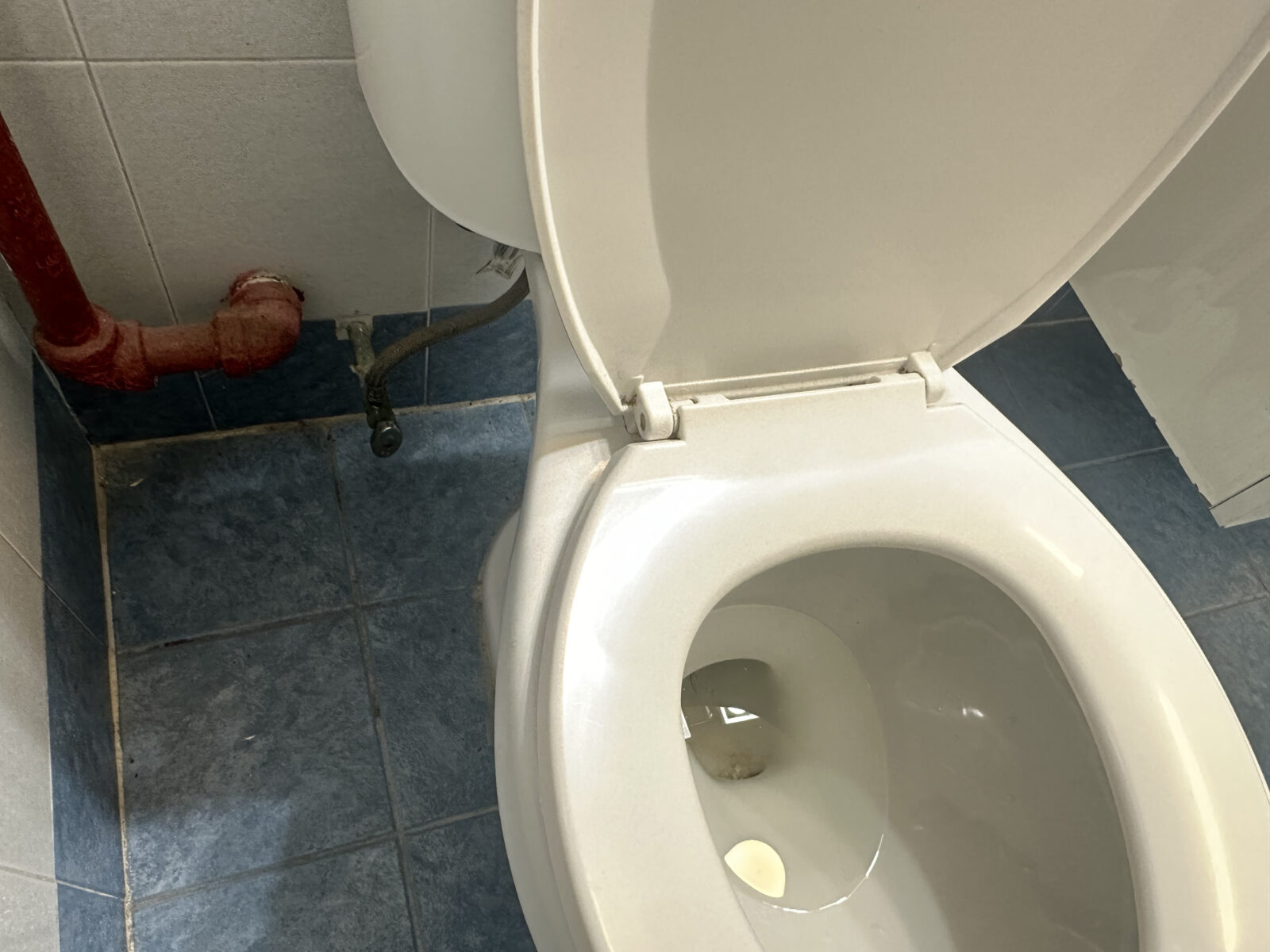
5. Water Heater Issues:
When a water heater malfunctions, cracks, or leaks it can result in no hot water, or a flooded condition, which most folks consider a plumbing emergency. Of lesser concern is when a hot water heater makes unusual noises or provides insufficient amounts of hot water.
Remedy and advice: It’s a great idea to place a water alarm in the area drain or on the floor next to your hot water heater. If your hot heater leaks you’ll hear an 85 decibel alarm, and you can rush down and close the water supply to the heater.
All hot water heaters have their own dedicated water supply valves, which can easily be closed if the heater body or pipes crack and leak.
6. Sewer Drain System Backup:
When sewage backs up into sinks, showers, and toilets due to clogs, or issues in the main sewer line can quickly become an emergency if not addressed promptly and correctly.
Remedy: In most cases, a main sewer line backup requires a professional drain cleaner, with a heavy-duty electrical snake, or high-pressure water jet.
However as stated previously, stop using water or placing any additional wastewater down your drain lines. If you or your fellow residents continue to use water you’ll only exasperate the situation.
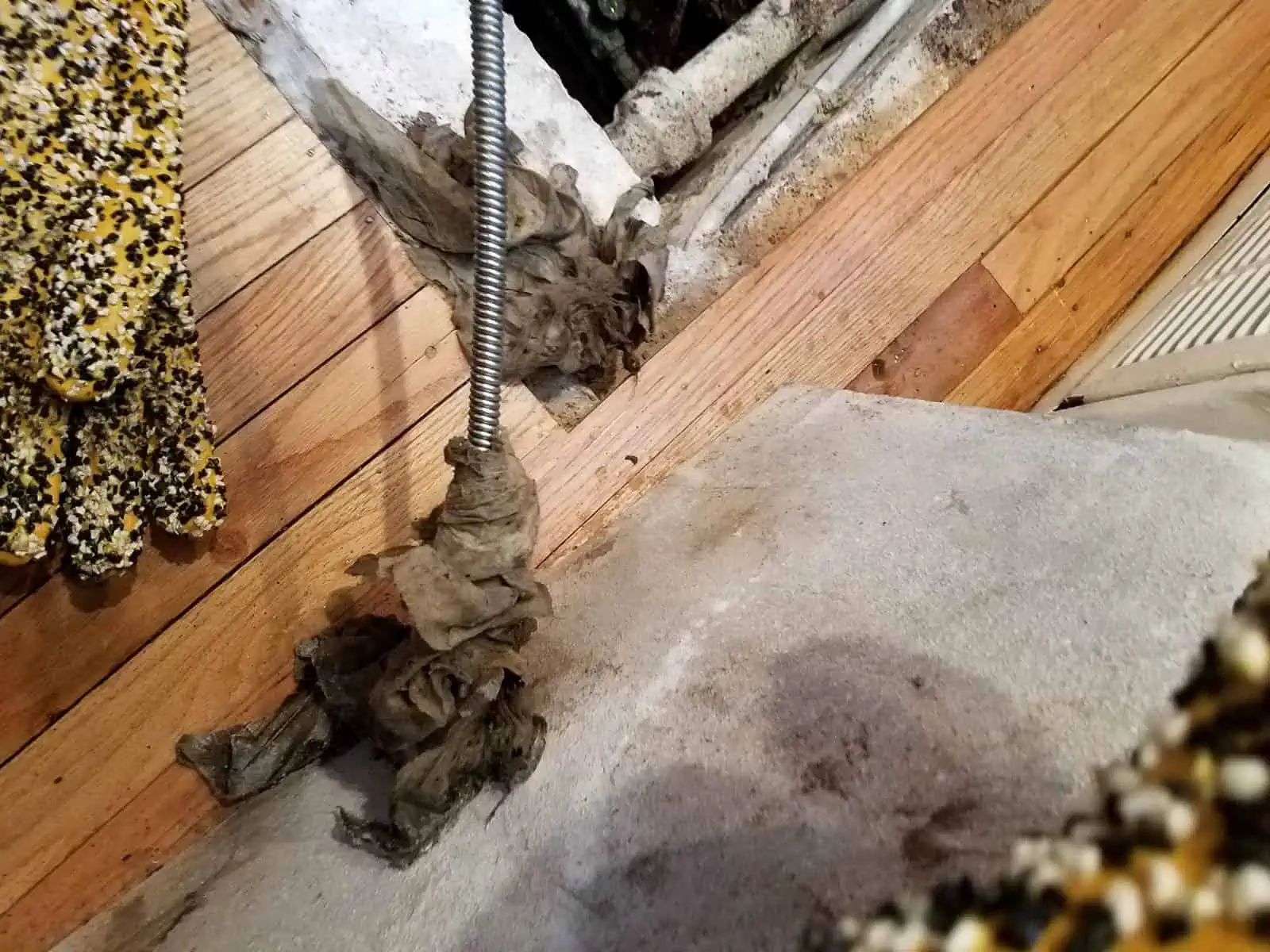
7. Failure of a Basement Sump Pump:
The failure of a sump pump can lead to basement flooding, especially during heavy rains or during a period of high groundwater.
Remedy a sump pump failure :When a sump pump fails it could be due to a lack of electricity. So, check the electrical connection and cord, and make sure there is power at the point of the outlet. You may also be able to install a battery backup.
Since sump pumps are relatively inexpensive, it may be a good idea to have a replacement sump pump on hand. In addition, it’s a very good idea to manually test your sump pump by lifting the float switch 2 or 3 times a year.
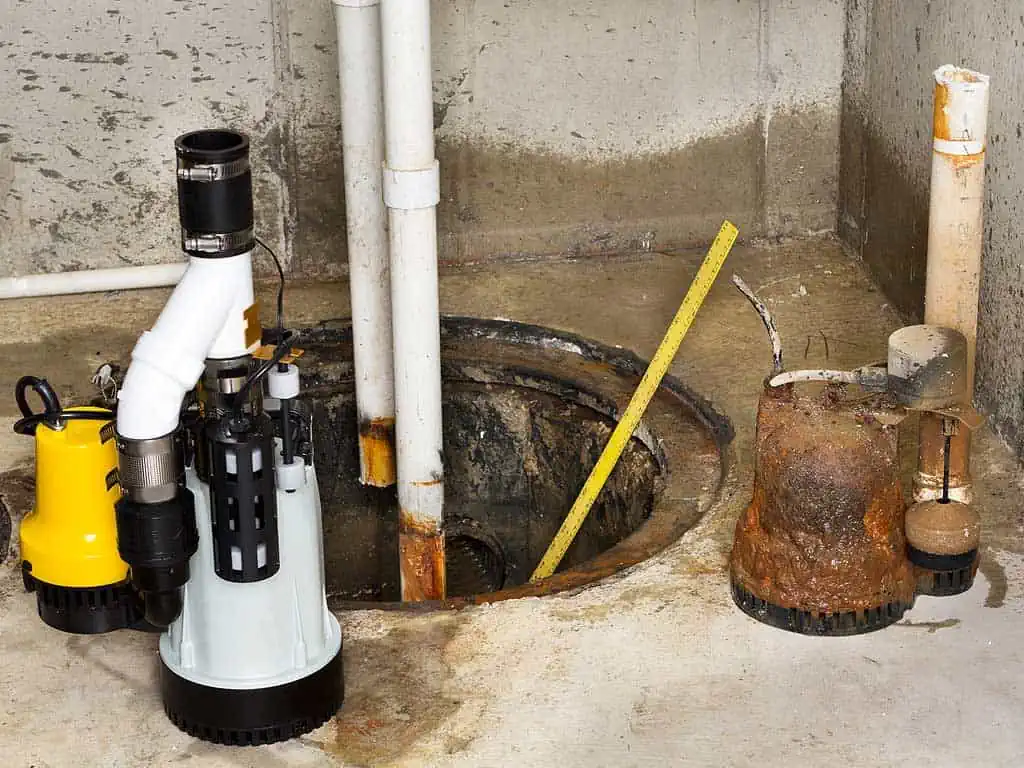
8. Gas Leaks:
Smelling gas or experiencing symptoms like dizziness or nausea can indicate a gas leak, which requires immediate attention. While a gas leak is not technically considered a plumbing emergency, it is quite a serious condition. Please note that there are 3 basic types of gas leaks, natural gas leaks, propane gas leaks, and sewer gas leaks.
Advise and remedy: If you have a natural gas leak or propane gas leak, it’s a good idea to vacate the building, or at least open some windows for ventilation. If you know it’s from a particular gas appliance, you can simply turn that appliance off. It is also advisable to never work on gas lines yourself, call a licensed local professional.
If you smell sewer gas, the first thing you may want to do is make sure that the plugs on all of your sewer traps and clean-outs are on tightly and securely. If your sewer trap is damaged, or you cannot locate the source of the sewer smell, it’s time to call a sewer drain professional.
9. Frozen Water or Heating Pipes:
When sub-freezing temperatures arrive, it can easily cause pipes to freeze and then potentially burst when they thaw out. During the wintertime, this is a common plumbing emergency.
Remedy: The best remedy for a frozen water line is to prevent it in the first place. Read about how to prevent frozen water lines, and also how to properly and safely thaw frozen water lines. Improperly thawing out a frozen water line can result in a serious injury. It pays to spend a few minutes about the proper pipe-thawing processes before you jump into such a task.
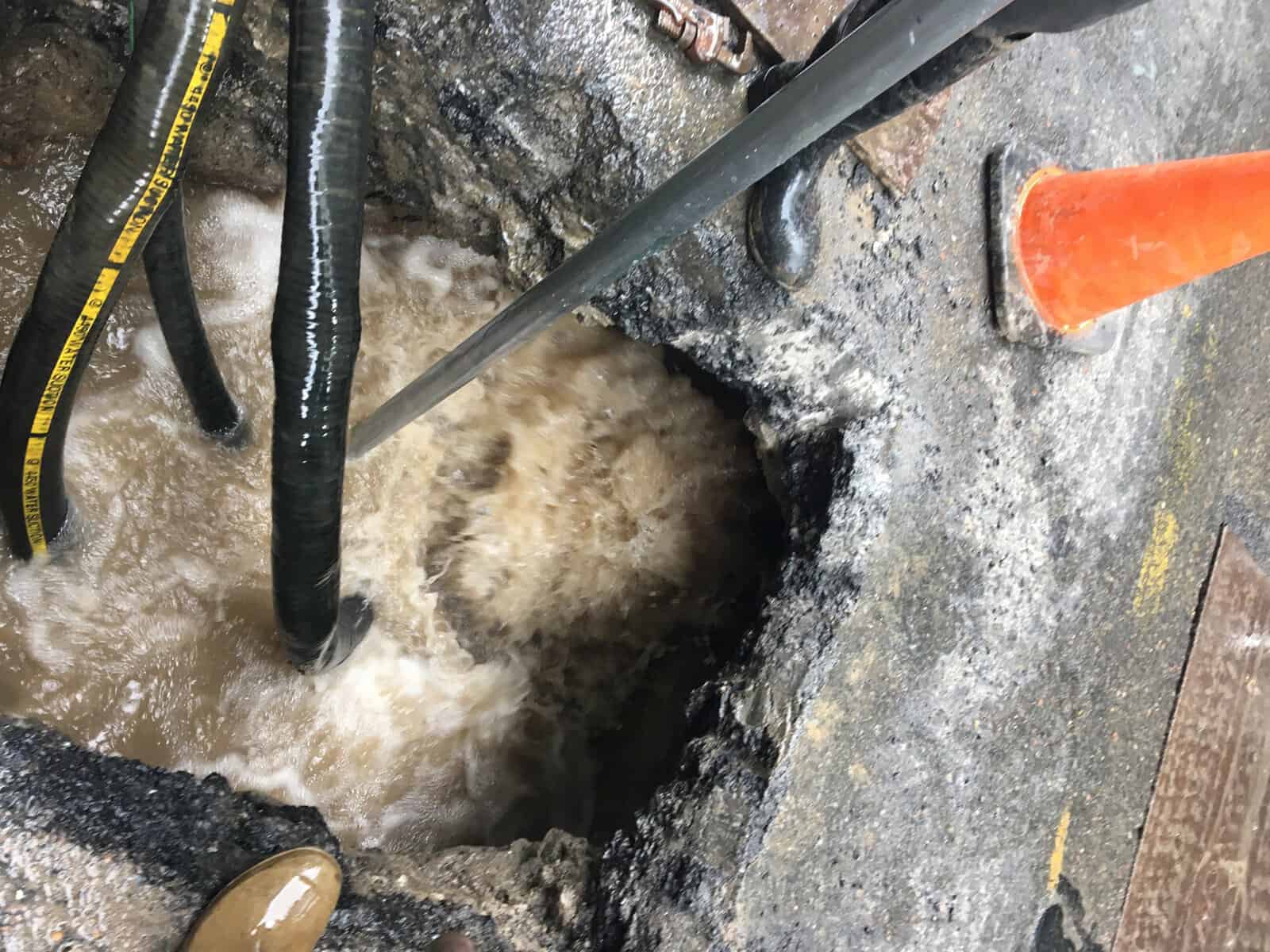
10. A Loss of Water Supply to Your Building and The 4 Main Reasons:
A sudden loss of water supply to your building can happen for various reasons. The 4 main reasons for a loss of water supply are as follows:
- If the gate drops closed inside the body of a gate valve.
- In some cases, your main water service line may rupture or split to the point that you lose water pressure inside the building. Contrary to popular, belief this is not a common event when a water line starts to leak.
- Every water service line has a tap connection, which connects your water line to the public main water line. If your tap connection to the public main gets clogged, you will lose water pressure, or water service entirely. In most cases, the tap connection can be cleaned out.
- If the local water utility is performing work on the main water line in the roadway, they may have closed the water supply during this period of planned or emergency work.
Remedy and advice: Once you’ve confirmed that all of your water valves are open and operational, it’s time to take additional action. First and foremost, call 311 and report your condition. 311 will alert your local water authority.
Water Service Line Breaks Require Professional Attention
Your next call is to your local plumber unless the situation is an obvious water service line break. If it is an obvious water main break, or the DEP has shut off your water due to a leak, it’s time to call a water main contractor licensed in your area.
A 5-Step Process To Find “An Emergency Plumber Near Me”
- Online Search Platforms: Use search engines or online directories to find an emergency plumber near you. Include your location or zip code along with keywords like “emergency plumber near me” or “24-hour plumbing service.” Always verify that you are dealing directly with the company performing the work and that they are licensed in your jurisdiction.
- Local Neighborhood Directories: Sometimes checking local business directories, local newspapers, or listings specific to plumbing services in your area can result in a trusted local emergency plumber.
- Apps and Platforms: Utilizing apps or platforms specifically designed to connect homeowners with local service providers can be helpful. Some apps specialize in emergency services and can connect you with plumbers nearby.
- Ask for Recommendations From Friends, Family, and Neighbors: Seeking recommendations from neighbors, friends, or family who have recently used an emergency plumbing company is a great idea. Word-of-mouth recommendations are frequently the most dependable and trustworthy. In some cases, there are 24-hour emergency plumbing services available.
- Check Reviews on Trusted Search Engines: Always look for reviews and ratings on platforms like Google, Yelp, or Angie’s List to ensure the quality and reliability of a plumbing service company. The result may surprise you in some cases.
Research & Find 24 Hour Emergency Plumbing Services Before You Have An Emergency
Before a plumbing emergency ever occurs, it’s wise to research and keep contact information for reputable emergency plumbers readily available. Know the answer to the question “Where is there an emergency plumber near me?” before the need arises. It’s also essential to verify their licensing, insurance, and emergency service availability beforehand.
Team Balkan is the Leader in the NYC Sewer and Water main Industry
For over 70 years and with over 90,000 satisfied Balkan is The Team You Trust. Guaranteed response times, free on-site visits, and no obligation professional assessments are all part of the Balkan advantage.
